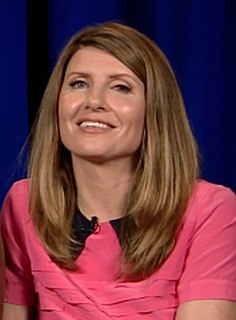A Quote by Shunryu Suzuki
The Zen way of calligraphy is to write in the most straightforward, simple way as if you were a beginner, not trying to make something skillful or beautiful, but simply writing with full attention as if you were discovering what you were writing for the first time; then your full nature will be in your writing.
Related Quotes
People who write for reward by way of recognition or monetary gain don't know what they're doing. They're in the category of those who write; they are not writers. Writing is simply something you must do. It's rather like virtue in that it is its own reward. Writing is selfish and contradictory in its terms. First of all, you're writing for an audience of one, you must please the one person you're writing for. Yourself.
Actually, I've taught creative writing in Turkey, at an English language university, where the students were native Turkish speakers, but they were writing their essays in English, and they were very interesting - even the sense of structure, the conventions of writing, the different styles of writing.
At first, teaching was more or less a straightforward way of making a living and having access to institutional resources while writing - aka libraries. And that was not inconsiderable. But it didn't in any way touch the writing. Maybe it would push the writing aside sometimes, but mostly it was fine.
The secret to writing sound effects is having a room you can be alone in, trying to make the sounds yourself, and seeing what comes out. It's similar to if you're writing a character talking with their mouth full: the only way I know to transcribe that is to stuff my fist in my mouth and write down what sounds I make when I try to talk.
If you always dreamed of writing a novel or a memoir, and you used to love to write, and were pretty good at it, will it break your heart if it turns out you never got around to it? If you wake up one day at eighty, will you feel nonchalant that something always took precedence over a daily commitment to discovering your creative spirit? If not--if this very thought fills you with regret--then what are you waiting for?
I wrote lots of scripts that never got made and they were terrible. I thought they were good at the time. You can't write two scripts and expect your career to take off. Keep writing. Be you. Be original. A lot of people go for a genre, which is fine if you can do that really well, but we all have such layered histories. We all come from a unique background. Write about your past, write about you. Or make stuff up, but make it about something that really matters.
There is a huge tension in trying to write with small children because they demand your attention and your time with a fierceness that can be matched by nothing else, but if you are successful in writing while you have small children, I actually think that your writing is likely to be deeper than it was before.








































